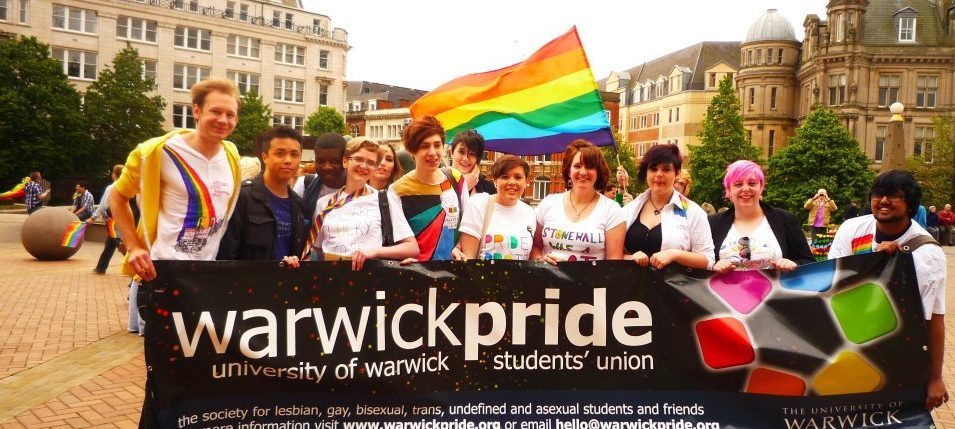Not on our TERF!
It’s Pride Month on campus, and we are celebrating a movement towards equality for the University of Warwick’s transgender and non-binary community. Last month, the decision to introduce gender-neutral toilets across campus, the result of a campaign by Warwick Pride, was widely viewed as a step towards broader and better gender expression for students.
However, the battle to establish equal rights for transgender and non-binary students is not over. On February 20, Warwick Anti-Sexism Society, or WASS, will be hosting a highly anticipated event called ‘Turfing out the TERFs’, in a bid to tackle a particular type of trans-misogyny which threatens to damage such progress.
Trans-Exclusionary Radical Feminism, or ‘TERF’, is a subgroup of radical feminism whose ideology excludes the transgender and non-binary community. Leading advocates of this belief system, such as author and activist Janice Raymond, described transsexuality as the ‘medical abuse of women’ and perceive male-to-female transgender women as an inherent threat to female spaces, with predatory sexual intentions. Subsequently, transgenderism is labelled as a divisive force of the patriarchy and one of the highest forms of misogyny.
Trans-Exclusionary Radical Feminism, or ‘TERF’, is a subgroup of radical feminism whose ideology excludes the transgender and non-binary community.
An example of the TERF’s popularity and impact is the Public Facilities Privacy and Security Act, signed into law on March 23 2016 by North Carolina Governor Pat McCrory. The law, which stipulates that individuals may only use bathrooms which correspond to the sex listed on their birth certificate, uses the rhetoric of TERF to justify their arguments against the construction of a gender neutral bathroom and claim their decision was made in the name of protecting women.
Although, in light of recent events, Warwick are an exception to this type of bathroom discrimination, WASS President Uma Kotwal is concerned about the impact of TERF on social media, and the potential harm caused to trans and non-binary students online.
“They will often discover transwomen, some of them teenagers, on the internet and they’ll email their school, out them to their friends or send their parents a letter”.
Similarly, Warwick Pride representative Alex Lythall has seen a growth in casual trans-misogyny following the US elections, using the infamous ‘pussy hats’ worn at the Women’s Marches as a prime example. “They are extremely harmful to transwomen who might be standing there without a vagina”.
Similarly, according to activist Marie Solis, signs reading “Pussy Power”, “Viva la Vulva” and “Pussy Grabs Back” send a clear and oppressive message towards transwomen.
Similarly, according to activist Marie Solis, signs reading “Pussy Power”, “Viva la Vulva” and “Pussy Grabs Back” send a clear and oppressive message towards transwomen. This casual association of a person’s gender with their genitals can have a significant impact on the mental wellbeing of trans and non-binary students who feel like they don’t have the right to spaces that ought to be for their use when they experience the same sexism.
“They can’t access the support system because more privileged women, such as cis or straight women, are denying them the right to be in those spaces”
WASS and Warwick Pride therefore view TERF’s threat to human rights as not just an LGBTQ problem, but rather a harm inflicted from inside the feminist movement. Therefore, both societies stress the importance of students outside of the trans community attending events like ‘Turfing out the TERFs’ and educating themselves further. According to Uma, TERF is a narrow focus which is advantageous to only the most privileged white women. In this sense, the best way to combat this prejudice is for all liberation societies to attend each other’s events and “hear about experiences that aren’t their own”.
TERFs are working to create the invisibility of non-binary people.
Furthermore, WASS transgender representative Ryan Girard argues that cis women play a huge part in combatting TERFs, through acknowledging that “sex, gender identity and gender expression are very different things – they can either align with societal preconceptions of gender or go against the norms.”
“You should always respect someone’s pronouns and identity no matter what people’s genitalia or gender expression is. Also, don’t shame transfeminine people if they want to look more like a ‘real woman’, because they already are. TERFs are working to create the invisibility of non-binary people.” As relentless campaigners, Warwick Pride and WASS have moved swiftly on from the success of the petition for gender-neutral facilities on campus, and are now seeking to educate the wider student community, warning that everyday terminology is at risk of making you a Trans-Exclusionary Radical Feminist without you even realising it.

Comments (1)
I was right with you until you started going on about pussyhats. We can be accepting of trans women without pretending that misogynists don’t direct some of their prejudice specifically to people with vaginas. It’s about reclaiming a slur that refers specifically to a body part that AFAB people have.